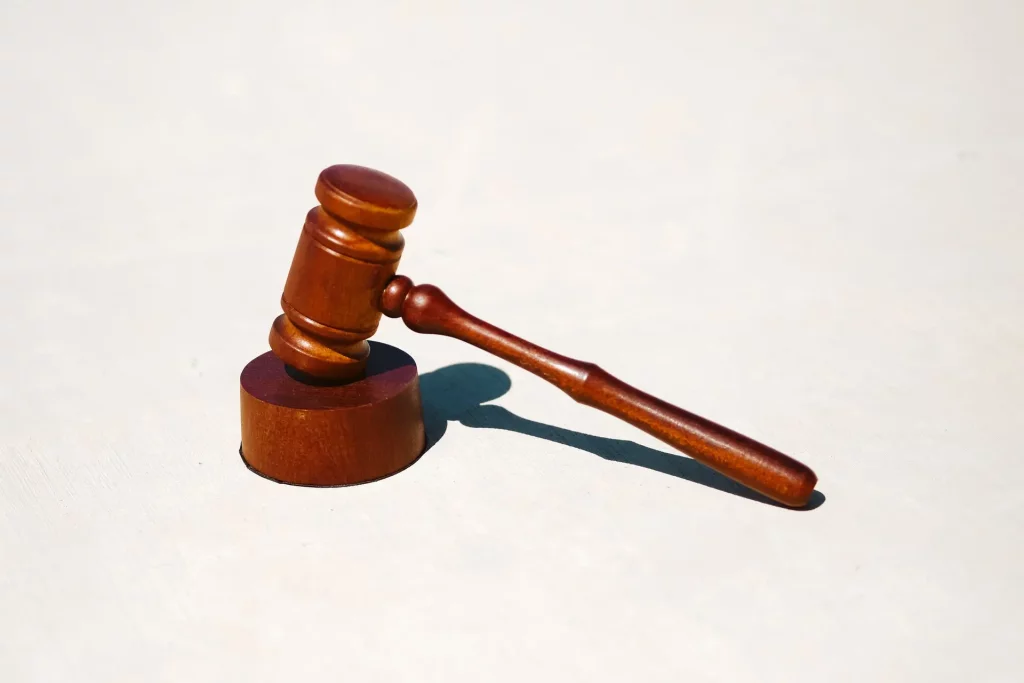When you’re facing a legal battle, you need a criminal lawyer who understands the complexities of the Canadian legal system, someone who will vigorously defend your rights and ensure that you receive a fair trial. At Kahlon Law, we are committed to providing exceptional legal representation to individuals in Mississauga and beyond.




When you’re facing a legal battle, you need a criminal lawyer who understands the complexities of the Canadian legal system, someone who will vigorously defend your rights and ensure that you receive a fair trial. At Kahlon Law, we are committed to providing exceptional legal representation to individuals in Mississauga and beyond.




 Joban SinghMarch 24, 2024I dont know where to begin with i got charged & i dont know what to do i was not in situation to think about anything , i was very depressed but he helped me from the very first phone call he told me that don’t worry he listened me very calmly & carefully. I am really very grateful to mr antar kahlon he is very good person & lawyer he got my charges withdrawn as he said . He always responds my calls , thanks for your guidance , support & care during my hardest time , he treated me as his younger brother . highly recommended
Joban SinghMarch 24, 2024I dont know where to begin with i got charged & i dont know what to do i was not in situation to think about anything , i was very depressed but he helped me from the very first phone call he told me that don’t worry he listened me very calmly & carefully. I am really very grateful to mr antar kahlon he is very good person & lawyer he got my charges withdrawn as he said . He always responds my calls , thanks for your guidance , support & care during my hardest time , he treated me as his younger brother . highly recommended Ramandeep GarhaMarch 21, 2024Antarpreet is a great lawyer! He listens to his clients very carefully before coming up with solutions. I had a great experience with him and I recommend his services to anyone looking for a good lawyer.
Ramandeep GarhaMarch 21, 2024Antarpreet is a great lawyer! He listens to his clients very carefully before coming up with solutions. I had a great experience with him and I recommend his services to anyone looking for a good lawyer. Fisher MillsMarch 8, 2024Antar is good and nice talk layer he lishen to u very polite and peaceful and he amazing one think whenever u talk to antar he answered u rightway otherwise he call u back soon as possible and other layers one time we have experience they charge me money after they don’t pick my phone so please u find good person is very hard . So after we find antar thank god my friend send me to antar and he finished my case only 2 months thank god we find nice person and good lawyers cuz he don’t my waste time and waste my money im really (❤️ dilo)appreciate and respect antar cuz he never talk me rude . Mai waheguru g da thanks karda we find antar , cuz we happy they don’t changed me too much money compared other layes veey very affordable price like u meet antar one time is my opinion really if anybody problems so u visited antar please and thanks
Fisher MillsMarch 8, 2024Antar is good and nice talk layer he lishen to u very polite and peaceful and he amazing one think whenever u talk to antar he answered u rightway otherwise he call u back soon as possible and other layers one time we have experience they charge me money after they don’t pick my phone so please u find good person is very hard . So after we find antar thank god my friend send me to antar and he finished my case only 2 months thank god we find nice person and good lawyers cuz he don’t my waste time and waste my money im really (❤️ dilo)appreciate and respect antar cuz he never talk me rude . Mai waheguru g da thanks karda we find antar , cuz we happy they don’t changed me too much money compared other layes veey very affordable price like u meet antar one time is my opinion really if anybody problems so u visited antar please and thanks Devin RupraMarch 8, 2024Antar was extremely professional. A pleasure to interact with.
Devin RupraMarch 8, 2024Antar was extremely professional. A pleasure to interact with. Abhishek ShettyMarch 7, 2024Antar is an amazing lawyer. He worked on my case diligently for over 6-8 months. He helped me get the outcome I wanted for my case. He is very approachable and very clear about costs associated with any case. I was really scared when I reached out to him. He asked me my priorities after reviewing my situation. He over delivered on those priorities. He was always available over phone and email for any questions. He did a great job explaining the legal perspective in simple words. He was always calm. He has great relationships with the stakeholders of the legal system. He will help you level set and understand your chances in any situation. Overall I am very satisfied with my experience and I would highly recommend his services.
Abhishek ShettyMarch 7, 2024Antar is an amazing lawyer. He worked on my case diligently for over 6-8 months. He helped me get the outcome I wanted for my case. He is very approachable and very clear about costs associated with any case. I was really scared when I reached out to him. He asked me my priorities after reviewing my situation. He over delivered on those priorities. He was always available over phone and email for any questions. He did a great job explaining the legal perspective in simple words. He was always calm. He has great relationships with the stakeholders of the legal system. He will help you level set and understand your chances in any situation. Overall I am very satisfied with my experience and I would highly recommend his services. Pardeep GillFebruary 20, 2024Antar is amazing he really cares about his clients and does the very best to help them. He understands his clients situation.
Pardeep GillFebruary 20, 2024Antar is amazing he really cares about his clients and does the very best to help them. He understands his clients situation. nida raheelFebruary 12, 2024Very respectful and attentive to details. 200% recommended his experties.
nida raheelFebruary 12, 2024Very respectful and attentive to details. 200% recommended his experties. JAGDEEP SINGHFebruary 9, 2024Amazing lawyer, got my matter withdrawn. Always answered all my calls. Highly recommended.
JAGDEEP SINGHFebruary 9, 2024Amazing lawyer, got my matter withdrawn. Always answered all my calls. Highly recommended. Samira CecunjaninJanuary 29, 2024Amazing Lawyer, hopefully I won't need him again but if I do I won't look further 🙂
Samira CecunjaninJanuary 29, 2024Amazing Lawyer, hopefully I won't need him again but if I do I won't look further 🙂 Samia AmeenJanuary 23, 2024Our experience dealing with Antar was very positive. When we were looking for a lawyer for our child, Antar provided detailed consultation without any upfront fees. He realized our pain and assured us he would do his best. During the process, he was always instantly available to answer our calls and kept us in loop with every single update. We are extremely satisfied with his services, can’t thank him enough for what he did and got the best outcome for our child. We will always remember him in our prayers. He is the right choice if you are ever in need of a lawyer. God bless you Antar. Thank you very much.Google rating score: 5.0 of 5, based on 115 reviews
Samia AmeenJanuary 23, 2024Our experience dealing with Antar was very positive. When we were looking for a lawyer for our child, Antar provided detailed consultation without any upfront fees. He realized our pain and assured us he would do his best. During the process, he was always instantly available to answer our calls and kept us in loop with every single update. We are extremely satisfied with his services, can’t thank him enough for what he did and got the best outcome for our child. We will always remember him in our prayers. He is the right choice if you are ever in need of a lawyer. God bless you Antar. Thank you very much.Google rating score: 5.0 of 5, based on 115 reviews




A robust and well-crafted defence strategy is paramount for anyone facing criminal charges, as it can significantly impact the outcome of a case. Antar Kahlon, an experienced Mississauga criminal defence attorney, brings extensive knowledge and skill to building strong defences for his clients. Our firm goes above and beyond by investigating alternative explanations, presenting exculpatory evidence when available, and ensuring that law enforcement agencies have acted within the boundaries of their legal authority. Our firm has helped numerous clients avoid convictions by successfully arguing Charter violations resulting in the exclusion of firearms, drugs, breath samples and more.

A skilled Mississauga criminal lawyer will also work towards obtaining a favourable resolution as this can save additional costs associated with a trial. This involves working with our clients and the Crown prosecutor to reach a resolution, which can include the withdrawal of charges, reduction in penalties, avoiding jail, and preventing a criminal record. Negotiation may also involve proposing alternative sentences which avoid a criminal record and imprisonment. Our firm has extensive experience negotiating resolutions for our clients and we take pride in delivering favourable outcomes that reduce the impact on personal and professional life. For instance, Antar Kahlon has successfully negotiated a withdrawal for individuals charged with, domestic assault, sexual assault, drug trafficking, criminal harassment, firearms, and many more.

We at Kahlon Law know that trial advocacy is a crucial part of defending clients. Thorough trial preparation involves presenting the case persuasively in court, challenging the prosecution’s evidence, and cross-examining any witnesses called against them. Antar Kahlon understands how to use effective strategies when representing clients to have the charges dismissed at trial. For example, he can challenge illegally obtained evidence or inconsistencies in witness testimonies to strengthen his client’s case.
Furthermore, if a viable resolution is not feasible or appropriate for his client’s circumstances, Antar Kahlon has years of experience as a successful litigator who knows how to provide compelling arguments and present persuasive evidence during trials.
A skilled criminal lawyer in Mississauga can guide their clients through the court process, which includes several stages. Disclosure is a crucial part of this process as it involves gathering all the evidence the Crown intends to rely on in your case. Upon receipt of the disclosure, the experienced lawyer will review it with his client and formulate a defence strategy.
The next stage involved discussing the case with the Crown Attorney. During these meetings, issues such as resolution, outstanding disclosure and trial estimates may be discussed. A successful negotiation might lead to a favourable resolution, avoiding the high costs associated with trial.
If a resolution is not reached, the matter will proceed to a judicial pre-trial which consists of a meeting between the Crown, Defence and Judge. If the matter proceeds to trial, the Judicial Pre-Trial Judge will not be your trial Judge. This is done to encourage open discussions.
From the moment you contact Kahlon Law, our team of dedicated professionals is committed to safeguarding your rights. We offer:
As leading criminal lawyers in Mississauga, we specialise in a wide range of criminal defence cases, from minor charges to serious offences. Our team at Kahlon Law has successfully handled cases involving theft, assault, drug offences, DUI, white-collar crimes, and more.
We have built a reputation for our dedication, knowledge, and proven track record in the courtroom.
Our track record of successful case outcomes speaks for itself. We’ve helped countless clients achieve favourable results, and we’re ready to do the same for you.
A bail hearing is a court proceeding where a judge or a justice of the peace determines whether an accused person should be released from custody while awaiting trial.
If you have been charged with a criminal offence, it’s important to seek legal advice from a criminal defence lawyer in Mississauga. They can help you understand your constitutional rights and provide you with guidance on how to proceed. It is important that you do not provide any statement to the police.
A criminal defence lawyer in Mississauga can provide you with legal representation and advice every step of the way in the criminal justice system. They can help you understand your rights, provide you with guidance on how to proceed and represent your best interests in court.
Criminal defence lawyers handle a wide range of criminal charges including domestic assault, impaired driving, sexual assault, drug offences, theft, and more
Some criminal defence lawyers offer free consultations, while others may charge a fee. Our firm charges for a consultation, as we feel that any meaningful discussion, requires a thorough discussion of your case.
To find the best criminal defence lawyer, it’s important to do your research. Look for a lawyer with a track record of successful criminal defence cases and positive client reviews.

Don’t leave your defence to chance! Contact a Criminal Lawyer Mississauga today.